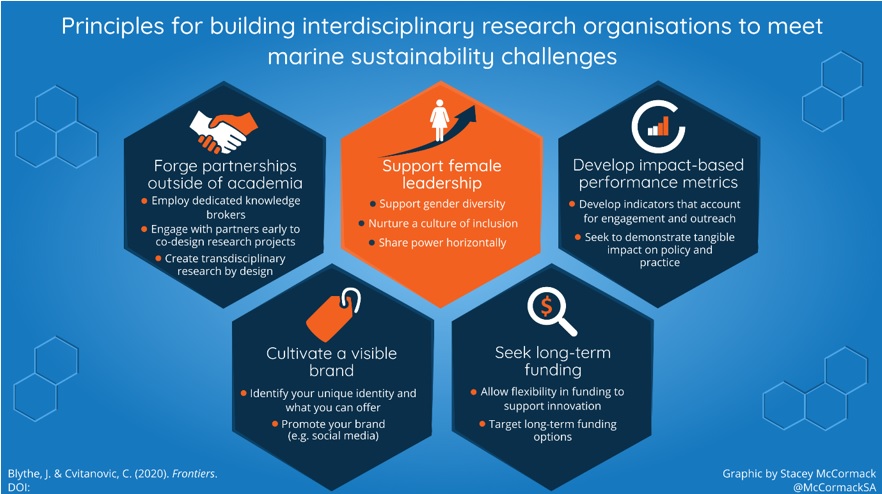Authors: Jessica Blythe and Chris Cvitanovic
The unique challenges presented by the Anthropocene to marine socio-ecological systems necessitate new approaches of knowledge production that are capable of integrating scientific disciplines to develop solutions that are desirable, equitable, and viable. Despite increasing rhetorical support for interdisciplinary marine research, however, significant challenges associated with doing interdisciplinary research persist, and undermine progress towards tackling and navigating the complex challenges faced by marine social-ecological systems. While a growing body of literature has sought to identify strategies for overcoming the documented barriers to building capacity for interdisciplinary research at the individual level, there is very little empirically derived guidance for how to build institutional capacity and structures that support interdisciplinary research, particularly for research organizations focused on developing solutions to marine sustainability challenges. To address this gap, in our new open access study published in Frontiers in Marine Science, we undertake an in-depth evaluation of the Centre for Marine Socioecology (CMS) in Tasmania, Australia, which brings together disciplinary expertise in physics, law, economics, biology, sociology and governance to solve the grand challenges facing the worlds coastal and marine environments. In doing so we identified five key organizational features that enable successful interdisciplinary marine research: 1) Support female leadership, 2) Forge partnerships outside of academia, 3) Develop impact-based performance metrics, 4) Cultivate a visible brand and 5) Seek long-term funding. We also identify strategies for achieving each of these five features. Future engagement with these five principles, including exploration of how they translate across contexts, scales, and geographies, will be critical for building the interdisciplinary research capacity that is required to tackle our most pressing scientific and societal questions.
